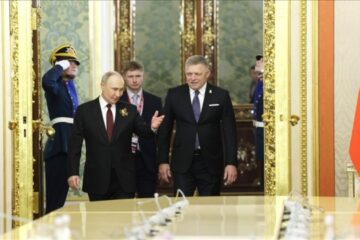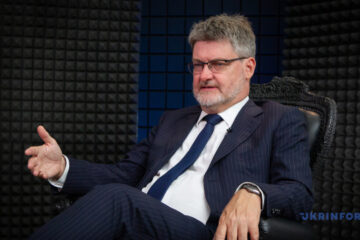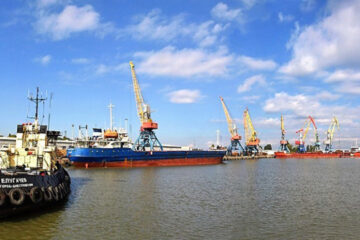French President Emmanuel Macron called Russia’s August 28 attack on Kyiv a “barbaric act.” He is among those advocating that a European military contingent could take part in a future mission in Ukraine. In addition, France’s Ministry of Defense has expressed its readiness to involve leading French automotive and defense companies in producing drones for the Ukrainian Armed Forces.
In an interview with Ukrinform, French Ambassador to Ukraine Gael Veyssiere spoke about prospects for military cooperation, French investment in rebuilding Ukraine’s civilian infrastructure, and lesser-known shared chapters of history.
Veyssiere is a trained economist and historian who began his diplomatic career in 1997. He has held key positions at the French Ministry of Foreign Affairs, particularly in European affairs and EU external relations, and served at the Permanent Mission of France to the UN. He is also a Knight of the National Order of Merit. Since August 2023, Veyssiere has headed the French Embassy in Ukraine. He does not confine himself to Kyiv, frequently traveling across the country, including to cities near the front line.
PUTIN CLAIMS TO SEEK PEACE WHILE ESCALATING ATTACKS ON CIVILIANS
– Your Excellency, I want to start with a simple question. How are you today? Because tonight [on August 28], together with the Ukrainians, you experienced yet another Russian brutal attack on Kyiv?
– It was a sad night, and it’s also a sad day for Ukraine, and for us as well. Tomorrow [on August 29] the French embassy will lower its flag as a sign of solidarity. And this morning [August 28], we went with the Minister of Foreign Affairs Andrii Sybiha and with the Minister of Interior to one of the main sites of the strikes of that night. Ukrainian people are the target, and it’s what my President called this strike a barbarian act.
– Russia claims it hit military targets. What did you see?
– I’ll simply tell what I saw this morning. It’s a place where you have normal people living, middle-income people and popular classes living, very normal places like everywhere in Ukraine, everywhere in Kyiv, outside of the center of the city. And the habitation was completely destroyed, big gap inside it. And I’ve been there before, I visited the same kind of site with my deputy Minister for Trade, I remember, a few months ago, and in another place, and another habitation completely destroyed, and tens of people were killed. And each time, apparently, they were targeting, as they say, a military objective. It’s difficult to believe that, actually.
– The death toll may change, but for now it’s known that this attack claimed the lives of 15 people, including four children, and left nearly 40 injured. And all this happened amidst the so-called peace process. Taking all of this into account, how does France see this possible peace agreement or ceasefire in the Russian-Ukrainian war, and what could security guarantees be like for Ukraine?
– Well, I think it’s very telling about what Russia really wants, because Russian representatives, in particular Mr. Putin, would say that they want peace, but in reality, they are increasing the war, a war against the military, but also against civilians, which is illegal. So, this demonstrates that they are not really committed to peace. So, either they have to change completely the course, or us, the international community, the Europeans, together with the U.S., will have to admit that basically, for the time being, they are not interested in peace.
The Russians are the ones blocking the peace efforts, and the idea of this bilateral meeting between President Zelensky and President Putin, which was agreed in Washington. And if they do this, well, then they should be sanctioned even more, to raise the pressure on them until they would be dedicated enough for genuine efforts towards peace. I think that this is the framework. You know, all diplomacy is to hold people to what they say – you commit to do something, we are in a very visible world, and then people will say: “You committed this, and you did that, and there is a gap.” Here it’s not a gap, it’s the opposite. So, it cannot continue like this.
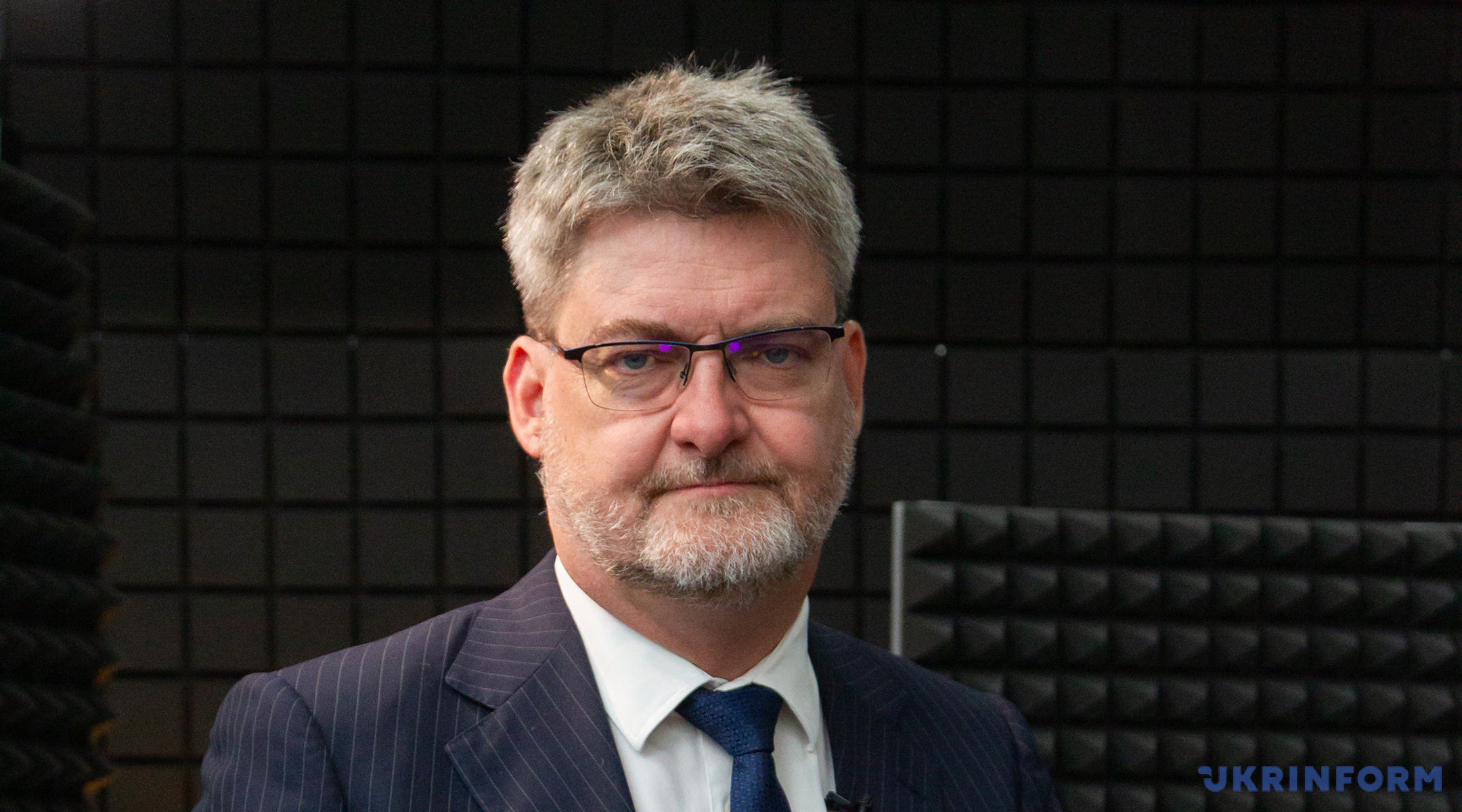
THE MAIN GUARANTEE OF SECURITY IS A STRONG UKRAINIAN ARMY
– In March, President Macron announced additional military aid for Ukraine worth EUR 2 billion. Are these resources already working for the front line?
– It has started, obviously. In reality, inside those EUR 2 billion, you have two very different things. One part of that is actually French military equipment that we can spare and provide to Ukraine, including ammunitions, Caesar cannons, French Mirage fighter planes. But the other part is things which can be bought, and Ukraine can use for this the ERA loan that the G7 provided for Ukraine, in particular the part which was provided by the European Union, including France.
So both tracks are being activated, and we are working with Ukraine precisely on that. In any case, one thing is clear – we have plenty of ideas, including what we call a reassurance force, boots on the ground in the framework of the ceasefire. But the first security guarantee whatsoever will always be the Ukrainian army. So, we have to provide support, equipment, training to the Ukrainian army so that it could be strong enough to be the main force to block future potential Russian aggression. And then we can complement that, or we can add to that other layers of protection, including an international reassurance force. We are trying to do all this at the same time, of course, not alone with our friends and partners, and we are all very much focused on this.
– Deutsche Welle reported that France wants more than double the number of reservists. What is the French attitude nowadays towards military service and armed forces, and is there a growing concern about the security situation in Europe?
– Well, there is certainly a growing security concern about the situation in Europe and about the challenge that actually Russia’s attitude is posing to all of us, and mainly to Europe, because Russia is on the European continent too, but also because Russia is challenging by force the world order based on rules and based on commitments, and based on rule of law and negotiations. And the EU has been constructed the other way around, to promote resolution of conflicts through rules, through discussions, through negotiations, and ultimately through rule of law and the court of justice and all this. So, it’s completely contradictory and there is a huge challenge, which is actually a threat for our security. Your security in Ukraine is directly linked to our own security.
We are not so far away, and we are perfectly aware that, actually, Russia can also be a threat, a direct military threat to other parts of the continent. We have to rise up to this challenge. This is why the French President announced that we were going to double the budget of the French army. It was supposed to be before 2030, but it will be before 2027, which is, of course, a huge effort. And we are also going to increase our support to Ukraine at the same time. I think that when you look at the polls now everywhere in Europe, but also in France, people do realize that actually Russia is a threat, and they consider it as a threat. Now we have to be strong enough to take all the consequences of this and to start equipping ourselves and making much more effort towards this goal.
This is happening in France. And it’s also happening in the EU. I’ve been posted in the French Permanent Representation to the EU for a long time, some years ago, and at that time it was not chic to speak about defense or military. What was really important was to discuss about development, but now, obviously, everybody can see that what the EU really needs is sustainability, but also efforts in defense, and that the EU institutions do have a very important role to play on the civilian side, but also on the military like Ukraine Facility, now the new SAFE program, from which Ukraine can benefit indirectly. We have to do all this at the same time, for Ukraine, but also for ourselves.
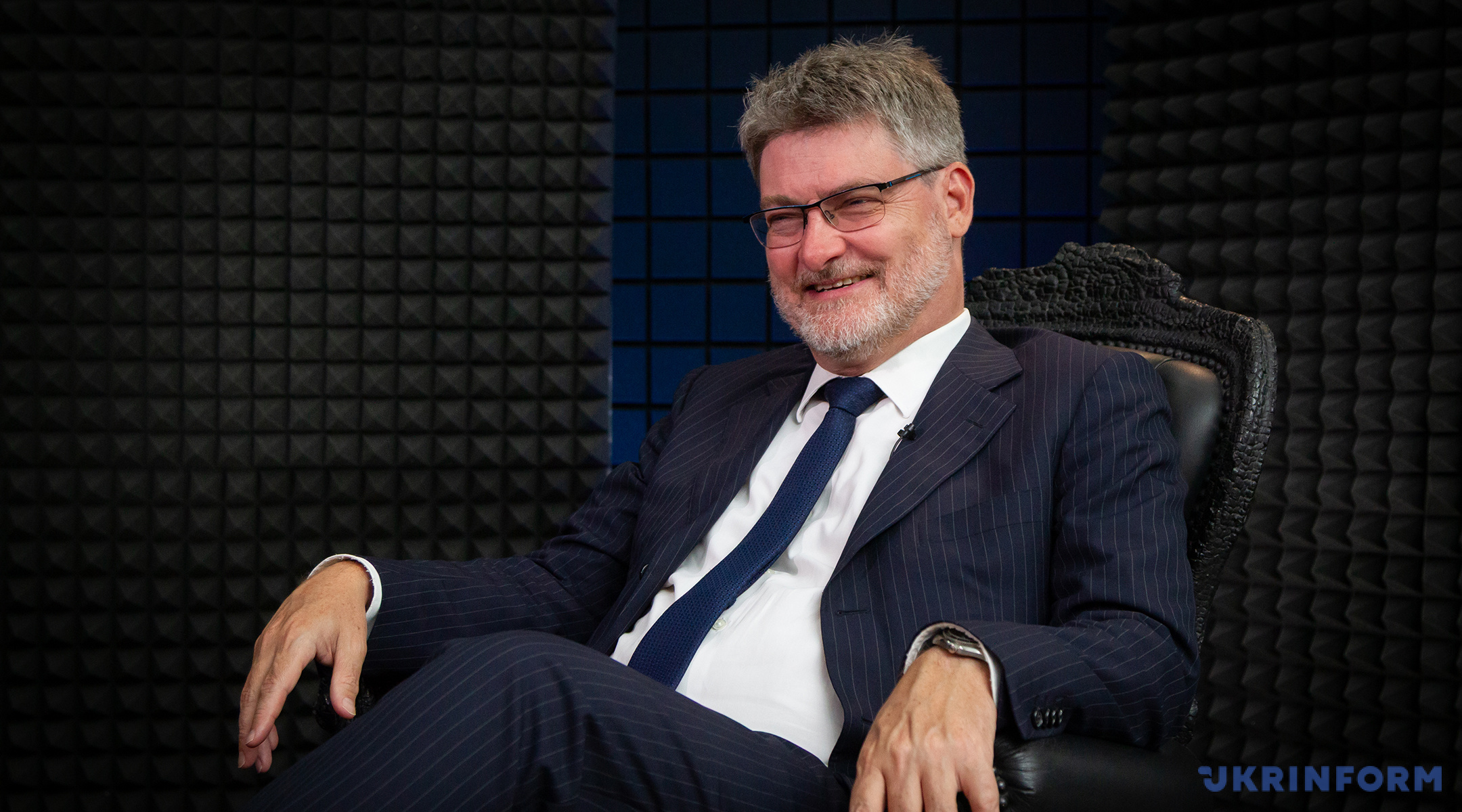
– Actually, just recently, Russian propagandist Margarita Simonyan suggested that Paris should be renamed into Vladimir-on-Seine, suggesting that it may be occupied. Are these threats heard by the French government or by the French people?
– Well, we take every threat very seriously. There are much more serious threats regularly, including Internet, informatic attacks, for example, on our own systems. There have been, in the past, Russian attempts to tamper with our electoral process. So, yes, we are taking all this very seriously.
I think that what is new is that now everybody in Europe is taking this very seriously. We exchange a lot between ourselves, and, of course, a lot with Ukraine, because, unfortunately, Ukraine has got this incredible experience of having stood up towards Russia for nearly three years and a half now and knowing this all by heart. So, we are learning also from each other and from the past.
WE MUST RAMP UP DRONE PRODUCTION IN EUROPE
– In June, it was reported that France would launch drone production for the Ukrainian Armed Forces in Ukraine. Could you elaborate more on this, or is this being kept a secret?
– Well, both, actually. It is still being considered and worked upon. My Minister of Defense did announce that it would be done with a very famous French society, which is called Renault, which is a great specialist of vehicle-building, so it could be very interesting to provide lots of very high-quality drones. And production can be either in the two countries, or first in France and then in Ukraine. So, all this is still continuing to be discussed. We are also discussing this with President Zelensky, because he made a public call to have more support to buy some Ukrainian drones for Ukraine. And we are also, of course, developing some joint capabilities in Ukraine, and we hope that this could be made more public at some point. For security reasons, we cannot say too much more. But I think we need to have drone and other weapons productions both in France and in Ukraine, in reality.
In any case, we need to produce more in the European continent. It’s good to have more production in Ukraine, because this is where this production is supposed to go, to be useful for the Ukrainian army. So, it saves time and energy. And we can have production, but also maintenance. But at the same time, it’s also useful to use the capabilities that we have in our own home countries. So, we have to work on all this, this idea has been very clear for the French government. And I perfectly remember the visit by the Minister of Defense in September 2023. I had just arrived here, and it was already very clearly a priority to do this. So, we are working on this. It’s not easy, and it changes all the time. Because the war changes, and the needs of the war change all the time. But I think it’s key that we would follow this.
– How did Ukraine’s success in using drones against the aggressor over the past more than three years influence France’s military doctrine?
– I think we have lots of things to learn from Ukraine and from what’s happening in the battlefield. Actually, what is most striking for me is that actually Ukraine demonstrates how useful it is to be able to use drones in two different ways. To use some specialized drones, expensive drones, be it for long-range, be it for observation, be it for communication and coordination of the other drones, or for supply. So, these are the added-value drones, and this is highly needed. But at the same time, you need huge amounts of very basic, common, simple, robust drones, which are going to provide basic security for the Ukrainian soldiers on the ground, and to deter the main bulk of the Russian military pressure when they try to move forward. So, you need to have both.
The traditional French way of thinking was to have very highly advanced technology things. We need this, but we also, in any conflict tomorrow, and certainly in this war, we need a high amount of very common drones, which are cheap, actually, but which can be cheaper if you can produce them in big volumes and even smarter, but in big volume.
– And using artificial intellect already for these drones.
– Yes, for drones and against drones to anticipate where the drone is going to be. We are very interested in this technology that you have developed of drone interceptor, for example. The drone against the drones. And, of course, artificial intelligence can play an important role in this. So, yes, there are lots of things to be learned, both from you and from us, and we are happy to participate in that. There is this idea of producing drones together, but there are also some French companies that bring very specific added value, like optics or software. It’s also important for Ukrainian companies to be able to rely on Western partners, which support them politically.
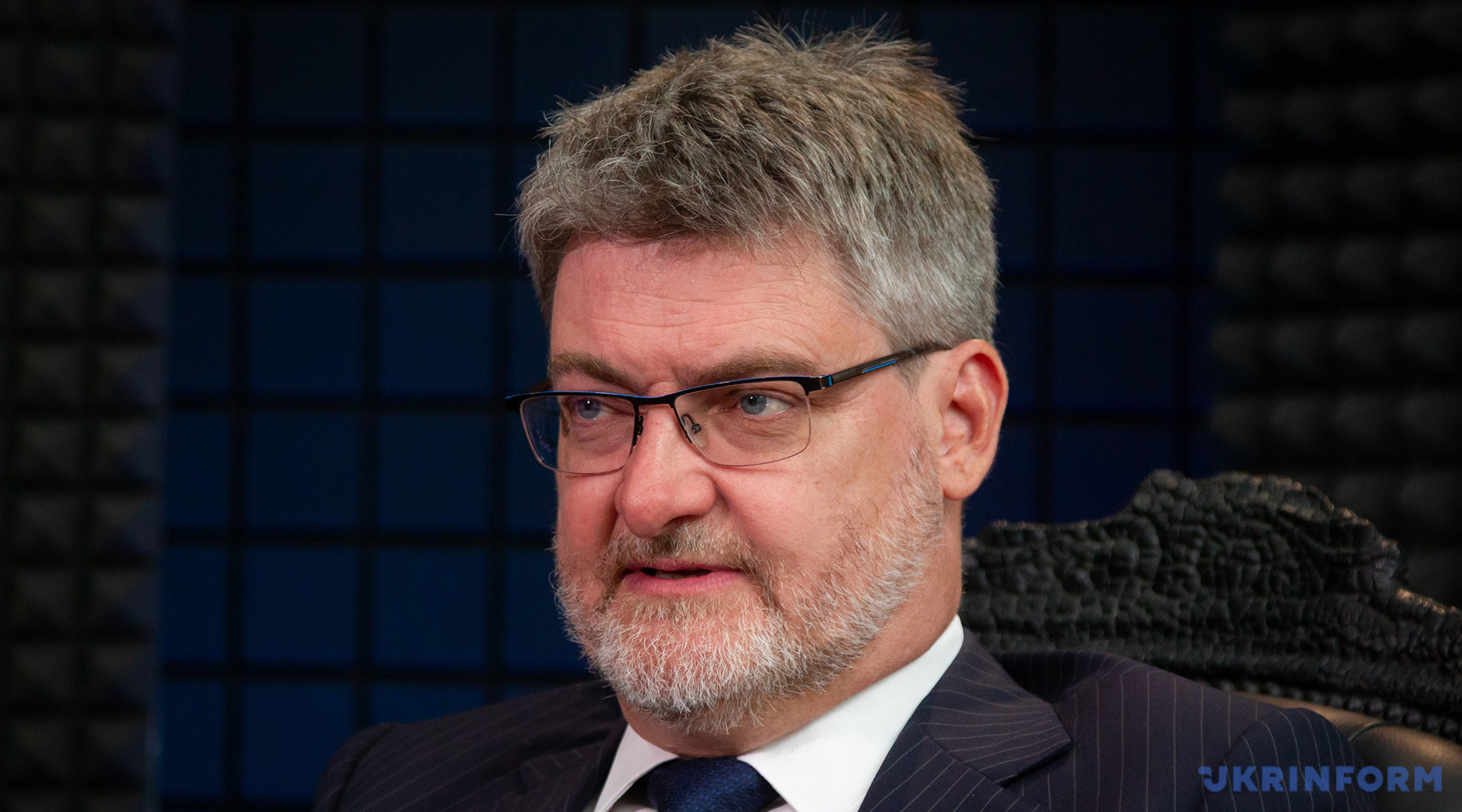
FROZEN RUSSIAN ASSETS CAN BE USED FOR UKRAINE’S RECONSTRUCTION OR DEFENSE NEEDS
– Your Excellency, how is France currently viewing the possibility of seizing Russian assets to support Ukraine?
– It has been and still is a very long and intense debate. Actually, there is a very active political debate in France. At the end of the day, everybody thinks that at one point, it will be necessary to use those Russian frozen assets for Ukraine. The questions are how and when. The question is how, because legally it can have very difficult consequences, so we have to assess that. But the question is also when, because we can use this money only once. You can use the revenues of the frozen assets every year, but the capital only once. So, should it be used by Ukraine for the war, to win the war, and to buy more drones or should it be used by Ukraine for the reconstruction? Because the chances that Russia is going to willingly pay some amount of money for reconstruction are slim. They should do it, but will they do? I don’t know. But it would make a lot of sense to say: “If they don’t want to pay, let’s use their assets to finance reconstruction of Ukraine.” So, we would need this huge amount of money, but we cannot use it twice.
There is this discussion here, both technical and political, and with the Ukrainian government. But at the end of the day, I can reassure you that whatever the difficulties, including the legal difficulties, one thing is clear – it would be better to do this that than to finance support to Ukraine with taxpayers’ money. For the time being, we haven’t found collectively the magic bullet, the perfect way to do this. The discussion continues, and I know it’s a sensitive discussion. Sometimes people get upset about this. Ultimately, we will have to find a way to this.
I KEEP DISCOVERING STORIES OF OUTSTANDING UKRAINIANS WHO CONTRIBUTED TO WORLD CULTURE
– Your Excellency, in one of your interviews, you mentioned the love story of French writer Balzac and Eveline Hanska, and their marriage in Berdychiv was for you one of the pages of the shared history that you hadn’t known before and maybe that was distorted by Russia. What else from our common history or maybe intersections of famous historical figures has been an interesting discovery for you?
– Actually, it’s very interesting because when I grew up as a child in the French system, I studied Balzac as a huge author, so you study a bit of his life and you learn that he married this countess, Madame Hanska, and I was told that Madame Hanska was Polish. And then I was told that she wrote to him anonymously, this is how they met, through newspaper from Odesa, signing “an unknown lady in Odesa.” But I was young, so I didn’t ask “Polish and Odesa, so how does it go?”
So my point is, I think that part of Ukrainian history has been hidden, occulted by history and, of course, by Russian narratives, because there is this idea that “everything good, important is Russian.” Well, some of the best authors in Russian language were Ukrainians, actually. Being posted here, I discover that there are plenty of Ukrainians who had a very fascinating life and who had a very important contribution to our modern-day life, including in France. For example, Ida Rubinstein was Ukrainian. She was a great choreographer in Paris, very famous, and she’s the one who ordered to Maurice Ravel the Boléro. So, it’s thanks to her that we can have the Boléro. Thanks to this Ukrainian lady, actually. Sonia Delaunay, which is her married name, who was coming from Kharkiv, and was a great modernist artist in France and so on and so forth. Or there is an incredible story of Orlyk, who was a Cossack, who had to flee after the defeat of Poltava to Sweden, and then he came to France, and he fought for France, and he was a diplomat for France in Constantinople. So, we have all this culture, but most of the time, the most remarkable figures who are Ukrainian, we don’t always know they are Ukrainian. I think that we, in France, we have to change the way we look at this history. But we also have to reorganize our university courses on how to teach this history.
WE HAVE CREATED A EUR 200 MILLION RECOVERY SUPPORT FUND
– Your Excellency, you travel in Ukraine, you do not only stay in Kyiv, you’ve been to Dnipro, to Chernihiv, to other cities. How do the French government, business, or individuals support Ukraine, and also help to rebuild some of the infrastructure that was hit by Russia?
– So actually, we try to do things in an innovative way. And to do that, we launched mainly two tools. First tool was to enable one of the big French agencies, which is called Agence Francaise de Développement, which is a development agency, to act not only in developing countries, but also in Ukraine. So, we can provide loans, and we can also provide some money to local authorities. But the even more innovative way was to create this fund of 200 million euros, which benefited to19 firms, 19 projects, here in Ukraine. Not only in Kyiv or Lviv, but also in Kharkiv, or in Sumy, or Dnipro, in places much more difficult because of the pressure of war.
For local projects, of course, with the agreement of the central government. And we finance that. And I think it’s a great idea because it’s actually project-based. It’s everywhere on the territory, not only in Kyiv, not only in the western part of Ukraine. And it starts from the needs expressed by the local authorities, the local people. Because they know, do they need energy infrastructures? Do they need water infrastructures? Do they need demining assistance? And so on and so forth. It was a great success, and actually for this 200 million euros bilateral French fund, we received projects for an amount of more than 750 million euros. So more than three and a half times the amount we had. So, we decided to relaunch it and there will be a new phase of this project. We are working on this with the Ukrainian government, but also with other actors, for example, EBRD (European Bank for Reconstruction and Development) and EIB (European Investment Bank) or big French or Ukrainian companies to co-finance it. And I think that this works very well, it demonstrates an interest from French firms. But they want to be assisted, because it’s far away, because it’s war, because they’re afraid, because they don’t know exactly how it works. So, this framework we created with Ukraine is very useful.
– What is your general impression of your visits to these different cities?
– I think it’s so important to go to local places, to get out of Kyiv, because Ukraine is a huge country. Actually, it’s bigger than France. Population is smaller, but the country is slightly bigger. I was born in Marseille, very south of France. The atmosphere was very different from Lille, up north, near Belgium. So same thing here. The atmosphere in Odesa, in Kharkiv, or in Sumy (three places I was lucky enough to go to) is completely different. That’s the wealth of Ukraine, its diversity, because there are different ways of being Ukrainian, but it’s still being fully, completely Ukrainian. So we admire that a lot. And I think it’s very important also for an ambassador to encourage people-to-people cooperation, not only States, but also NGOs, civil societies, little organizations. For example, we have plenty of schools in France, which invite some Ukrainian children for holidays to come to France for a few weeks, forget about the war. It’s a small thing, but actually, it’s a very lasting thing, because those kids, most of the time develop friendship with French kids. And they discover our country in a completely different way and may keep these friendly connections throughout the years. And parents are very happy to know that their children are safe and sound, far away from the war. Of course, we have to focus on big political things, but it’s also important to spend some time to have these grassroots things to help people connect.
– Your Excellency, I thank you for this interview. And I thank the French government and the French people for this constant support, which we really appreciate.
– Thank you very much. And please know that you can count on us. France is very steady in its support to Ukraine, being humanitarian, economic, and military, and also political. We will continue to do this. And it’s a very strict and clear direction, that the French President and the French Minister of Foreign affairs have given to all the French system. And this is a priority for us. Again, there is no security for France or for Europe if there is no security for Ukraine.
Anna Kostiuchenko, Kyiv
Photo credit: Kyrylo Chubotin


